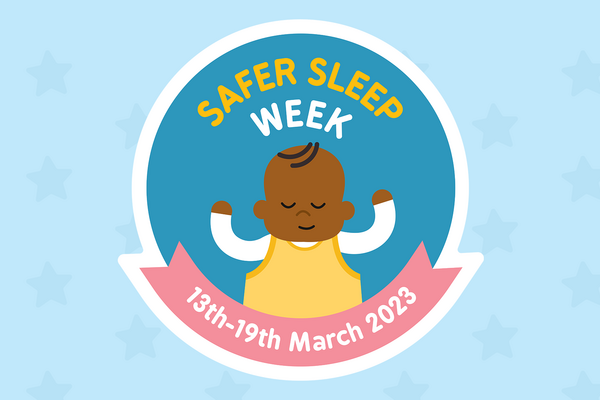A survey of over 3,400 new parents, carried out by The Lullaby Trust, has shown that 9 in 10 co-sleep with their baby. However, only 4 in 10 parents were advised by a health professional on how to reduce the risk of sudden infant death syndrome (SIDS) if co-sleeping with their baby.
Over 40% said they had fallen asleep on a sofa or armchair with their baby, which can increase the risk of SIDS by up to 50 times. The Lullaby Trust is calling for all parents to be given information on co-sleeping to help save babies’ lives.
Despite its prevalence, only 9% of parents who currently co-sleep with their baby had decided to do so before their baby was born. The Lullaby Trust carried out the survey as part of their annual Safer Sleep Week campaign, which raises awareness of SIDS and the simple steps that parents can take to reduce the risk of it occurring.
The Lullaby Trust is urging health professionals to have discussions with all families about co-sleeping, both before and after their baby is born, regardless of where they plan to sleep their baby.
Jenny Ward, Chief Executive of The Lullaby Trust said: “Co-sleeping needs to be discussed with all families. It is really important that parents feel able to have open conversations about co-sleeping with health professionals so they get the right advice. Most parents will co-sleep at some point, whether this is planned or unintentional. Simply telling parents not to co-sleep, or not discussing co-sleeping at all means that a lot of families could miss out on vital safer sleep advice that would help to reduce the risk of SIDS for their baby.
"The NCMD’s report shows that babies die in hazardous co-sleeping situations. To prevent further deaths, it is really important that parents are supported in planning their baby’s sleep. Every parent, regardless of where their baby sleeps, needs to know about both the risks of bringing a baby into an adult bed, and how to prepare the bed in case co-sleeping happens, intentionally or not.”
The Lullaby Trust has produced a co-sleeping animation for new and expectant parents. This has been released as part of their annual awareness raising campaign, Safer Sleep Week.



